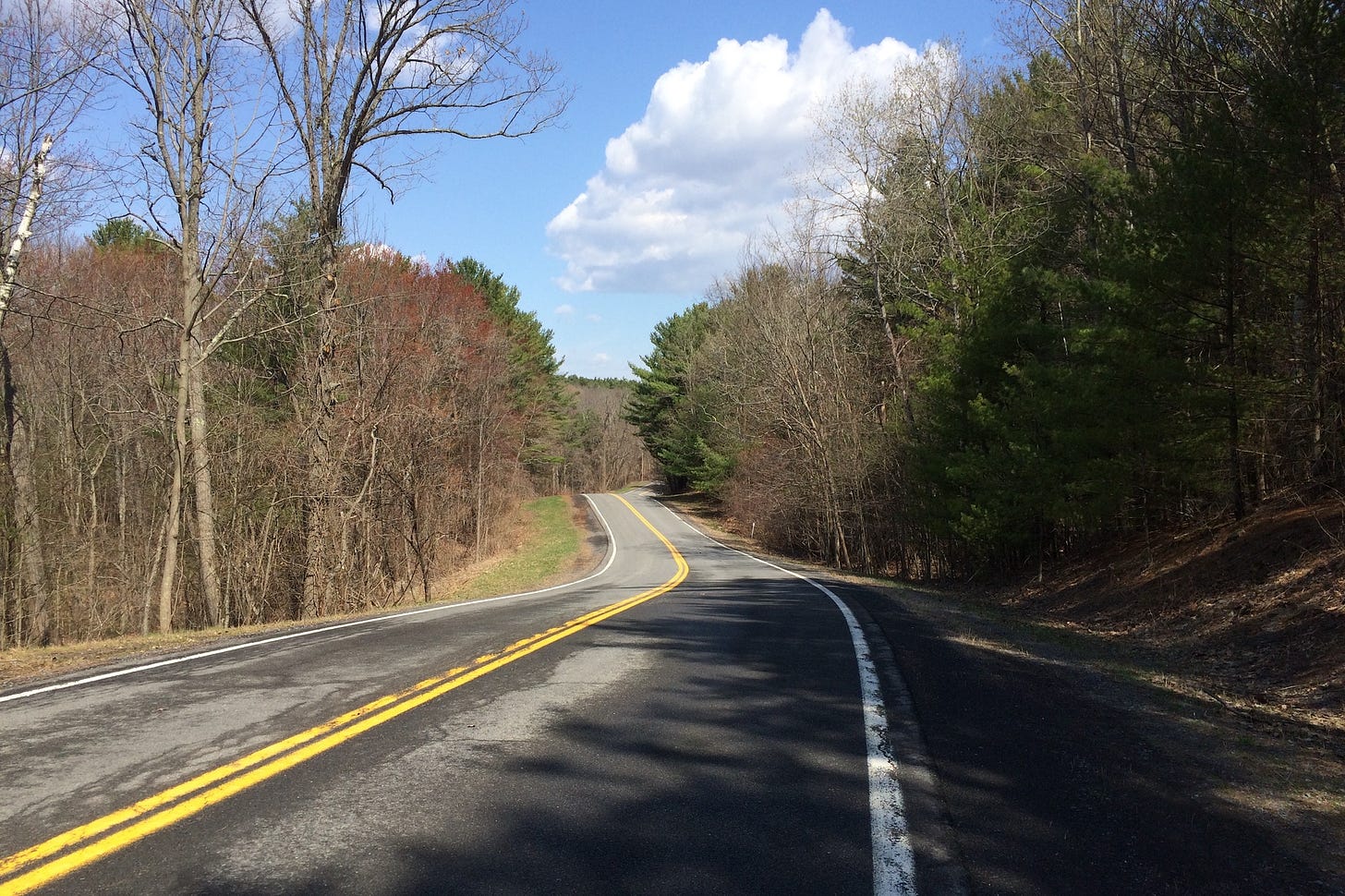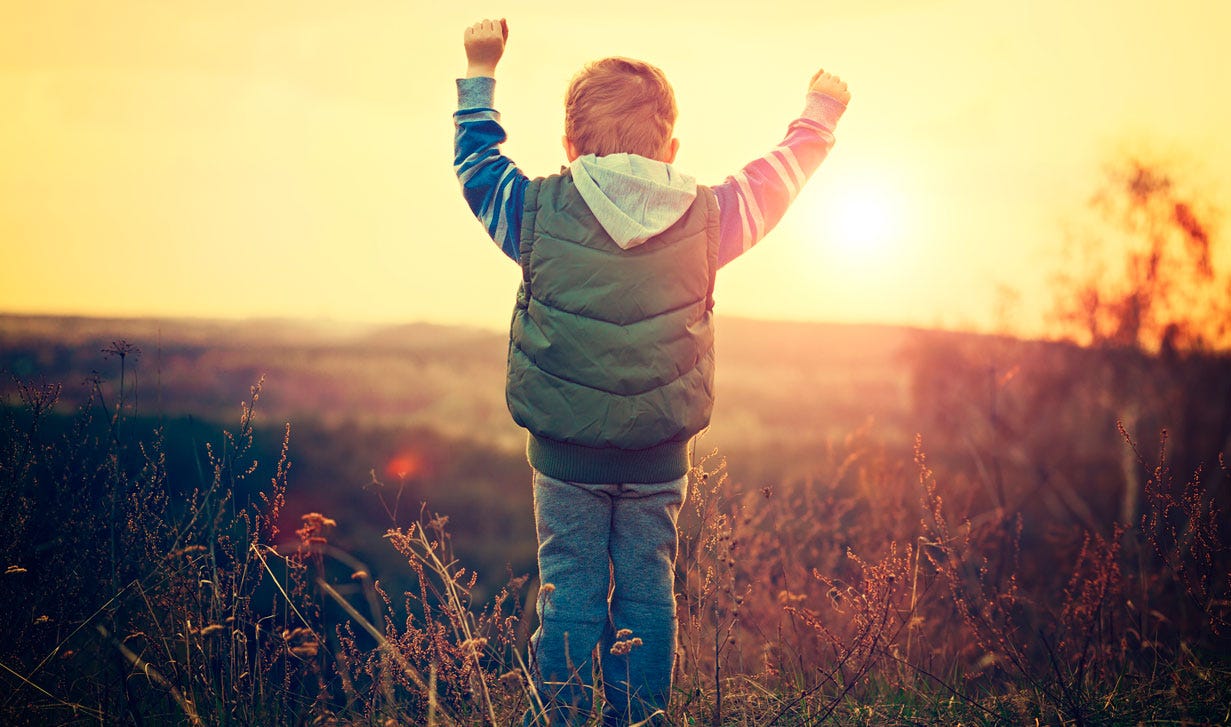
When I was a little kid, I loved all things with wheels. My first car was a classic, a red 1965 Mustang convertible. Well, not exactly, a pedal car bought by my parents when I was about four years old. I “drove” it so much the back wheels fell off, so they bought me another. Then there was a succession of bicycles. My goal was always the same, to see how fast I could go. Skinned knees and split scalps did not deter me. I just kept riding and crashing, much to my poor mother’s dismay.
My love of speed carried into adulthood. I became a serious bicyclist, grimacing my way up mountains and descending the steepest slopes at speeds in excess of 50 mph (80.5 km/h), with the goal of completing at least one century ride (100 miles, or 162 kilometers) every season. I had motorcycles, too, and carry a scar from breaking my a leg on one. There were a few sports cars as well, and some close calls as I tested the limits of adhesion on every back road curve.
However, in my adventures I discovered something important. Going slow is better. By my mid 30s I was done with motorcycles, preferring bicycles for their self-imposed slower pace and physical challenge, which encourages being part of the world, rather than passing through it.
I was skilled as a driver, but perhaps more lucky to get through my early years with nothing more than a single broken limb, my right tibia screwed back together with a metal plate. The speed I enjoyed, chosen and exciting, contrasts sharply with the speed forced upon us in life, often dull, in repetitive tasks servicing a handful of people with sociopathic needs for power and money, soulless desires. These needs are destroying an inhabitable planet in the name of the god called Consumption, drilled into our brains 24/7. This malevolent, invented deity replaces meaning in our lives with material objects, demands servitude to debt, and steals time with those we love.
I find it ironic that the word consumption is used both as a measure of economic health and a physical disease that wastes body tissue.
Psychosis is all around us, perhaps most of all in America, where mass shootings are now near daily events. The artificial world we have created with fossil fuels has not only harmed the planet and our bodies, but our mental health as well. Inner-city kids often grow up without so much as a tree. How essential is climbing and sitting in a tree for a child? That was a formative experience in my life, as was finding crawdaddies in the creek, running outdoors from dawn to dusk, and wolfing down a peanut butter sandwich at lunchtime as quickly as possible, filled with impatience to be outdoors again, making new discoveries about the world.
No robot can ever be as amazing or worthy as a crawdaddy in a creek. That strange crustacean from my childhood is a real creation.
We have lost our spiritual connection to Earth, and it’s killing us.
Slowness is wisdom and diversity is strength. These are the lessons of the universe and nature. We pay attention to neither. Instead, we’re obsessed with speed and control. These are two of our fatal flaws.
We are of this planet, of the universe, at once eternal and fleeting, destined to be recycled in a new form, a product of stardust as more than one person has pointed out. Our misguided removal from our mother has been abrupt, artificially created, and temporary. We have diseased her. Her forests burn with fever, her body is scarred by gaping open open-pit wounds, her seas phlegmy with our offal, and her blackened lungs now call us home. She is exhausted by our hubris, and disgusted by our indifference to her life sustaining gifts. She has offered everything our minds and bodies require, sustenance, wonder, and beauty. If we were wise, we could thrive on these infinitesimally rare gifts, until the sun begins its expansion into a red giant and boils our oceans a billion years from now.

Everything we need is here, nowhere else. Much of the planet, particularly the oceans, are still undiscovered or understudied. “Alien” life lives in those oceans and abounds in our insects. We have barely grazed the surface of what there is to be known on our Earth, or the knowledge to be gained from the gaze of our telescopes. Yet, we dream of colonizing barren, inhospitable worlds, rather than taking care of this one. It’s lunacy. We will never have what we have here, anywhere else. Never. To think otherwise is delusional.
I ponder why we’ve arrived at this point every day of my life now.
Life is governed by immutable laws. For something to live, something must die. Until Homo sapiens came along, the planet was in a state of equilibrium. When we lived as hunter-gatherers, that harmony was maintained. We took no more than what was replenishable. The rise of agrarian societies 6,000 years ago was the first significant alteration to the intimate, intricate balance of life on Earth, achieved by the patient wisdom of billions of years of species interacting with each other in symbiosis, evolution, ever so slowly giving rise to new plants and animals, and the gradual departure of others. The universe and life work on scales human beings can’t comprehend.
Slowness is wisdom and diversity is strength. These are the lessons of the universe and nature. We pay attention to neither. Instead, we’re obsessed with speed and control. These are two of our fatal flaws. I’ll save sheer malevolence for another article.
As always, the underlying theme of my writing about the #ClimateEmergency is behavior. Despite our latest advance in brain evolution, our vaunted frontal lobes, we seem to be driven by older, more primitive parts.
How life started on Earth 4.5 billion years ago is not agreed upon. What is agreed upon is that life came from a single source that that mutated and split off into other forms. Every plant and animal, you and I go back to that source. I was stunned years ago to learn we share the same DNA sequence that allows a tree to convert sunlight to energy, photosynthesis. That same sequence enables us to convert food to energy. Being a former and enthusiastic tree climber I found that beautiful, that a tree, the provider of food and homes to multitudes of creatures, cools us with shade on hot days and provides the very air we breathe, lives inside in our bodies.
It’s a thought that gives rise to wonder, humility and imagination, methodically trained out of us as children to become cogs in a system of self-destruction, and I wonder why? Is this the nature of most people given opportunity, or is this the nature of an aggressive minority leading the march to oblivion? Is this an outdated structural flaw in some of our brains, programmed by aggression to succeed no matter the cost?
Study of the brain is a new frontier, expanded by the scanning technology of recent decades. As a brain tumor survivor, I have direct experience, and gratitude for the precision my surgeon was able to use to remove an unwanted mass of nerves growing out of control, through the use of a functional MRI scan.
MRIs are commonplace now, and have been used to scan the brains of those who exhibit antisocial and violent behavior. In a recently published study of 800 prisoners representing ten years of data across eight prisons, scans revealed reduced gray matter in the orbitofrontal cortex and anterior temporal lobes of their brains. These areas are associated with empathy and behavioral control. 203 were convicted of a homicide or homicide attempt, 475 had committed aggravated battery, assault, armed robbery or other violent crimes, and 130 were involved in non-violent or minimally violent crimes. Similar problems have been observed from tumors and brain injuries in this region causing increased impulsiveness, depression, aggression, inappropriate sexual behavior, lack of thought control and violence.
For serial killers, addiction is also a factor.
Addiction starts with an introductory act. Once the craving has been satisfied, the behavior is reinforced, affirming the effectiveness of the act. The antisocial behavior is reinforced, but the craving goes on, unaddressed. Yet, with every successful act, the ability to feel satisfaction is reduced, driving more extreme behavior over time to achieve the desired relief or euphoria.
Could these be factors in the behavior of those destroying our planet, the mega-billionaires, the oil executives, the Donald Trumps and sycophants who are never satiated? Would brain scans reveal similar defects? After all, they are killing people with full knowledge, not with a knife or a gun, but certainly at much greater scale without even seeing the faces of their victims. Of course, that is little doubt helpful, not seeing faces.
We all know the name Rockefeller, with whose vast fortunes were made in the 19th and 20th centuries in the petroleum and financial industries. The companies and institutions they have owned and run include Standard Oil and Chase Manhattan Bank.
David Rockefeller, who died in 2017 spent 35 years at Chase Bank, twelve of them as CEO.
In his memoirs, published in 2011 of his family, he wrote:
“Some even believe we are part of a secret cabal, working against the best interests of the United States, characterizing my family and me as ‘internationalists’ and of conspiring with others around the world to build a more integrated global political and economic structure — one world, if you will. If that’s the charge, I stand guilty, and am proud of it.”
Personally, billionaire banker oil men don’t speak to my values. So screw you, David. Crap, I forgot you’re dead for a second.

When I was getting good at climbing trees, in first or second grade, a little girl still stands out in my mind. Her name was Becky, and she had a head full of beautiful dark, curly hair. When we were on the playground, Becky ran as if in slow motion. I don’t know why, if it was a handicap, or if she was simply wired differently from most of us. I remember her being ostracized mercilessly. “Oh, Becky, you’re so slow,” followed by the predictable laughter of idiots. Already at age six those kids knew how to be mercilessly cruel, little Rockefeller’s, regardless of their own comparative poverty.
There was a time when speed was essential to survival. If you needed to escape a wild animal, running fast may have saved your life, although of course we were slow compared to most predators. We couldn’t run very fast on two legs. We survived because of our brains and strategy. Can we adjust our brains and strategy? Survival now demands slowing down. Go slow, organize, sick-out, strike. The robber-barons aren’t going to slow down willingly.




Thank you. Just trying to make sense out of a senseless situation.
I have spent much of my life living for the moment. Every hour riding my bikes and spending time on mountain trails as opposed to a cubicle or under a thumb has been worth it.
I have no retirement to speak of, but no regrets, either. I was able to enjoy life when I was younger, healthier and stronger, and do things I can't do now. I guess I'm a quality over quantity person.
Time is our most valuable asset, hands down.
A beautiful article, well-written and full of wisdom. Since retiring (at age 70) and with a 20-year-old car (the best car I have ever owned), I have found that life is more enjoyable when you take the time to appreciate the things that are really important.